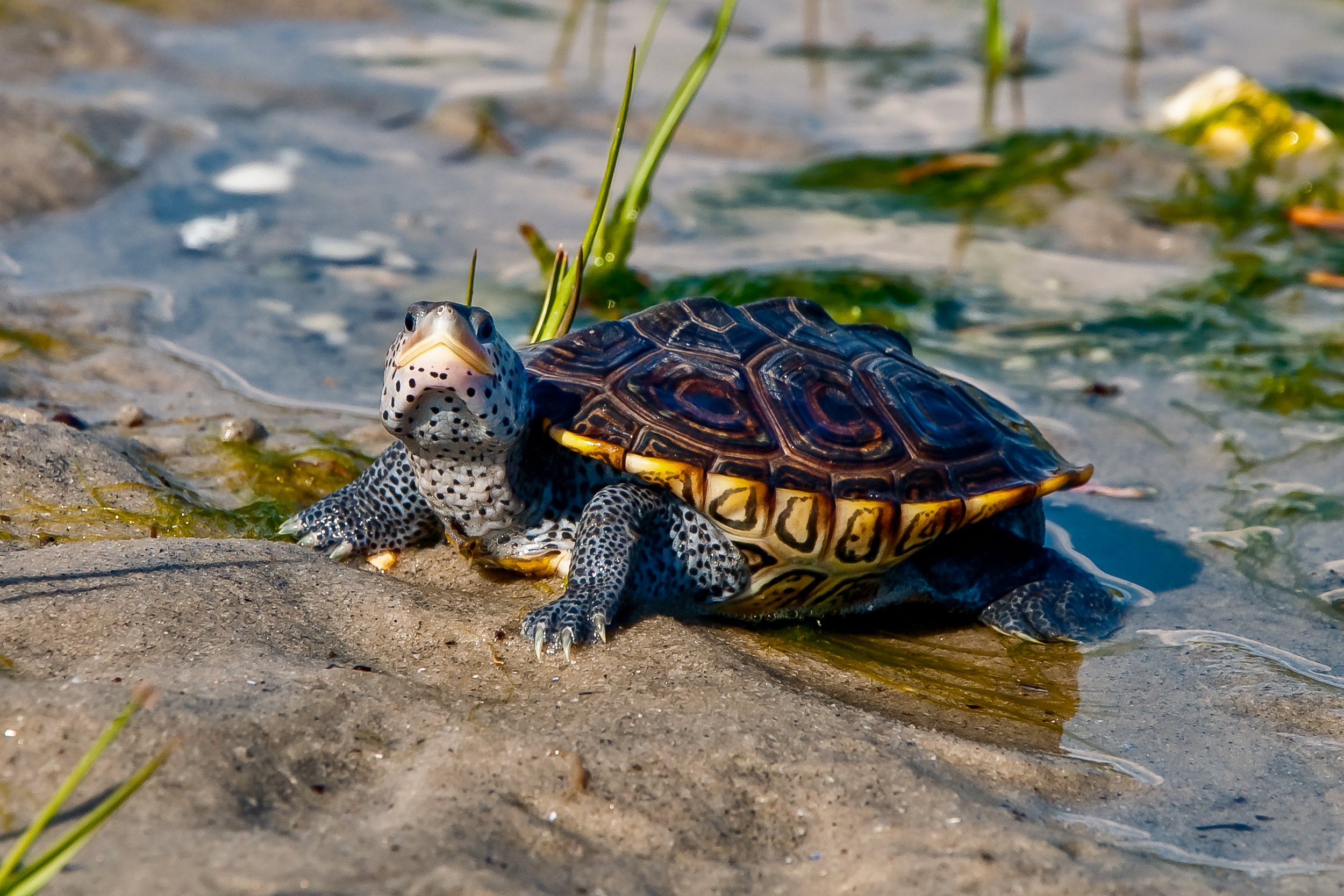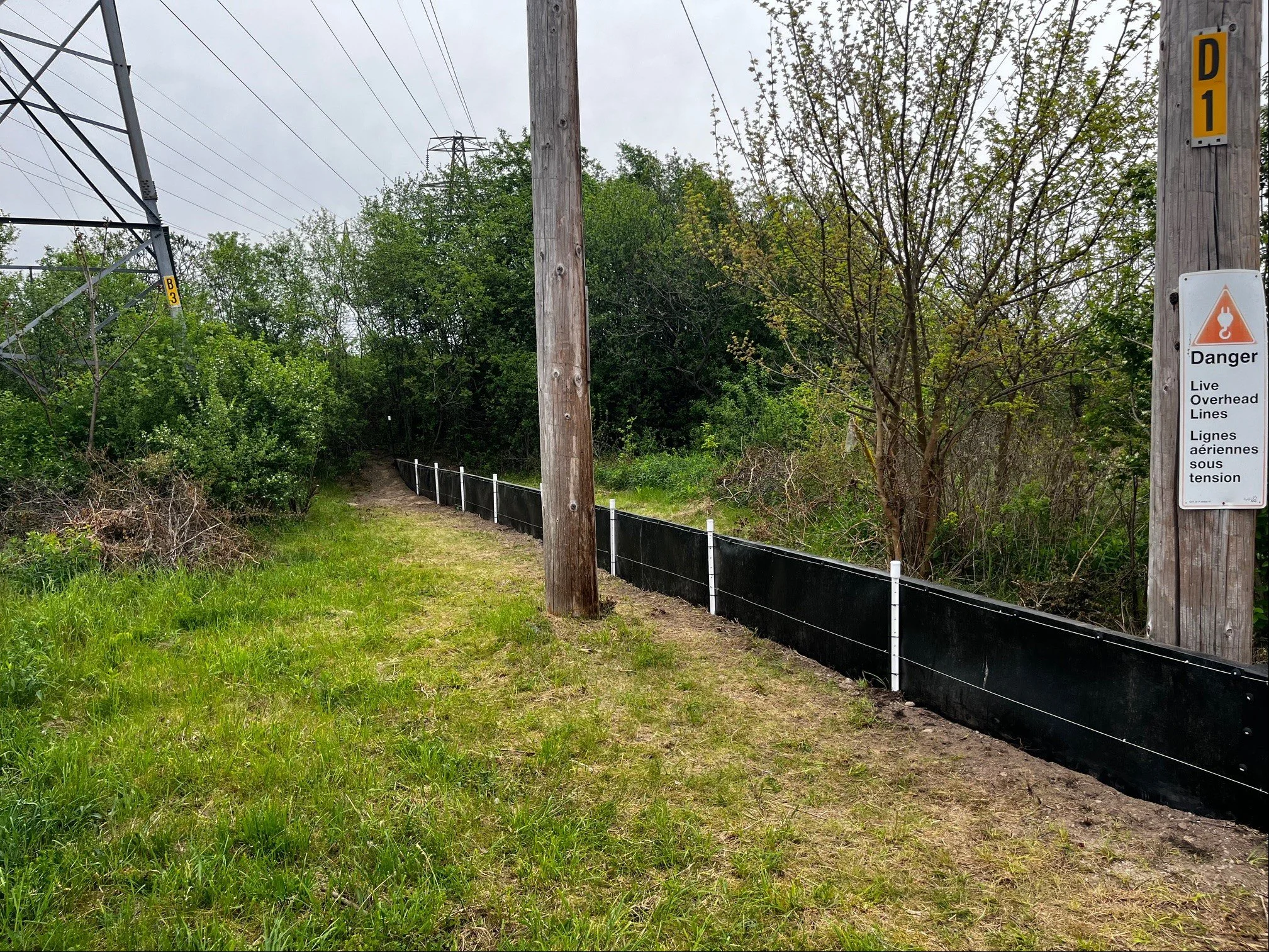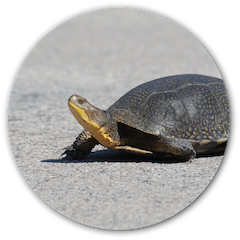
Turtle Fencing
Animex wildlife fencing is designed and tested to control turtle movement and exclude them from unwanted or dangerous areas. It optimizes natural turtle behavior to encourage safe and fast movement away from the fence line and, unlike mesh fencing, inhibits climbing and entanglement.
Fencing for turtles
Roads and construction sites are hazardous locations for turtles. While their hardened shell (with a bony carapace above and a plastron below) is sufficient defence against most natural predators, it is no protection from passing motor vehicles or earth-moving equipment. Additionally, on poorly fenced construction sites they are at risk of becoming trapped or injured in trenches, pipework, and machinery.
It is not uncommon to see freshwater turtles alongside highways and tracks in spring, summer, and fall. They commute across roads and construction sites as they search for food, or for mating partners, and as they move from pool to pool. Being ectotherms (“cold-blooded”), they are often attracted to the warmth of road surfaces. There, they will stop and retract into their shell in response to traffic. If commuting across a highway, they are usually slow-moving.
In the nesting season, female turtles are especially vulnerable, since they often dig into and lay their eggs in banks of gravel or sand on construction sites, highway shoulders, or gravel tracks. This is particularly true of sites near to ditches or wetlands. An additional problem is that breeding pools may be in-filled in large developments, so the animals will consciously be trying to locate them in the midst of construction work. If new ponds have been created as part of mitigation measures, fencing can be used not only to keep the turtles off site, but to direct them towards the new pools.
IMAGES: Musk, snapping and painted turtles captured in a culvert after being guided by Animex fencing in the Ausable Bayfield Conservation areas of Ontario, Canada.
Top 5 turtle species Animex is commonly used for:
Blanding’s turtle
Bog turtle
Painted turtle
Western pond turtle
Diamondback terrapin
Eastern box turtle Terrapene carolina
Western pond turtle Actinemys marmorata
Bog turtle Clemmys muhlenbergii
Yellow mud turtle Knosternon flavescens
Flattened musk turtle Sternotherus depressus
Ringed map turtle Graptemys oculifera
Ornate box turtle Terrapene ornatav
Spotted turtle Clemmys guttata
and more…
Height
40in is the product height most commonly used with turtles
Standard above-ground installed height 22in / 550mm (with anti-climb and anti-dig lips)
We have various fencing products suitable for turtles
Temporary
Recommended for short-term projects between 1-5 years but has an anticipated lifespan of 25 years.
Guide Price: USD $4 per ft / CAD $18.50 per m
Semi-permanent
Recommended for long-term projects of approximately 15 years but has an anticipated lifespan of 50 years.
Guide Price: USD $7.50 per ft / CAD $37 per m
Permanent
Recommended for long-term projects of approximately 25 years but has an anticipated lifespan of 50 years.
Guide Price: USD $30.50 per ft / CAD $153.50 per m
Guide prices are based on Animex fencing material and standard fixings and fasteners. This does not include support posts or installation. AMX-48 or a smaller unlisted or customized product may be more appropriate for some projects. Please contact us if you have any concerns or questions about the height or type of fence that is best for your project.












